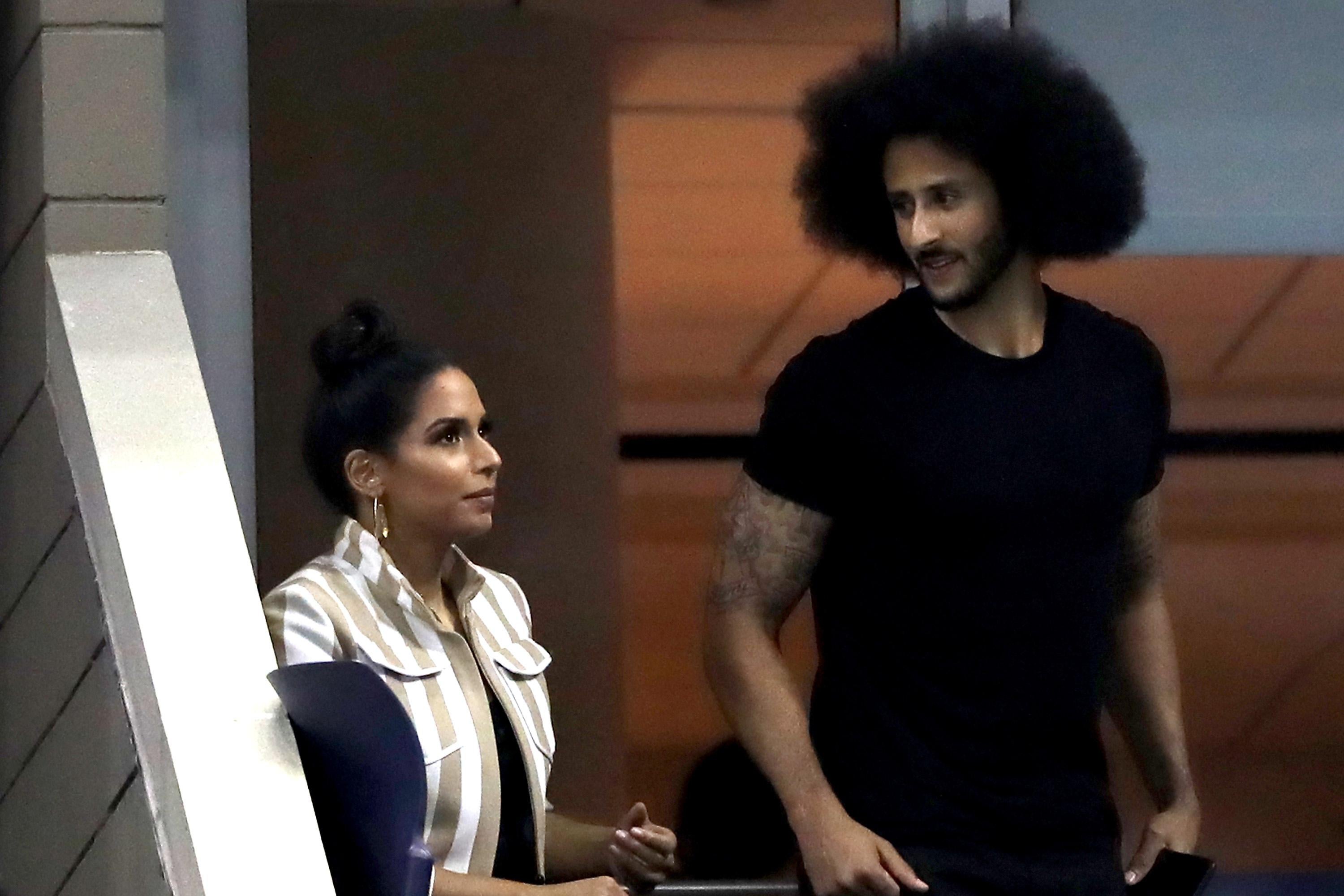On Friday, the NFL and representatives for Colin Kaepernick and Eric Reid announced that they had settled a grievance suit with the two players over alleged collusion to keep them out of the league because of their protests during the anthem.
“For the past several months, counsel for Mr. Kaepernick and Mr. Reid have engaged in an ongoing dialogue with representatives of the NFL. As a result of those discussions, the parties have decided to resolve the pending grievances,” the NFL and Kaepernick and Reid’s attorneys said in a joint announcement. “The resolution of this matter is subject to a confidentiality agreement so there will be no further comment by any party.”
Although the precise details of the settlement are as of yet unknown, it’s difficult to view the resolution as anything but a victory for Kaepernick and Reid. It will certainly be a win for the players financially. Bleacher Report’s Mike Freeman reported that NFL teams were speculating the settlement with Kaepernick alone could have been in the $60 million to $80 million range.
Kaepernick filed his grievance against the league in October 2017, alleging that one or more teams had colluded with each other and/or the league to keep him out of the NFL because of his decision to kneel during the national anthem in the 2016–17 season as a protest against police brutality and systemic racism.
Reid, who was the first player to join Kaepernick’s protest movement when they played together on the San Francisco 49ers, alleged in his grievance that he’d been blackballed for continuing to protest following Kaepernick’s exclusion from the NFL. Reid, who did not drop his grievance (and continued to protest) after signing a deal with the Carolina Panthers this season, recently re-signed with the team, getting a three-year contract worth more than $21 million. The 31-year-old Kaepernick, meanwhile, still does not have a job in the NFL after two seasons without a contract.
Kaepernick’s collusion case was strong enough to get past a summary judgment dismissal request by the league. In August, arbitrator Stephen Burbank announced that he had rejected that dismissal request, which meant the case would go forward before Burbank in essentially a trial format. Burbank’s decision was an indication that Kaepernick’s attorneys had gathered evidence in the proceeding’s initial discovery phase that was “sufficient to raise a genuine issue of material fact” over whether the league had blackballed Kaepernick.
The ruling based on the initial evidence—which was reported to have included many pages of electronic communications records, as well as several depositions with key NFL owners and executives—set up the potential for a major loss by the league.
Both the Kaepernick and Reid grievances cited President Donald Trump’s role in pressuring NFL owners to bar any players who protested during the national anthem. The New York Times reported that NFL owners held a closed-door meeting in October 2017 in which a number of them appeared terrified of Trump. The Wall Street Journal further reported that Dallas Cowboys owner Jerry Jones had been asked by Trump to deliver a message to the owners about the protest movement. “This is a very winning, strong issue for me,” Trump said, according to the Journal’s account of Jones’ deposition. “Tell everybody, you can’t win this one. This one lifts me.”
Now it appears that listening to Trump on the issue may have cost owners—and won Kaepernick—many millions of dollars without doing anything to stop the years-long discussion around police brutality and systemic racism that Kaepernick, Reid, and other NFL protesters helped generate.
Meanwhile, Kaepernick has been honored by multiple human rights organizations for his stand for social justice, and in September was made the face of a new Nike campaign that used his status as a modern-day civil rights icon to sell sneakers.
At the same time, the NFL has backed down in the face of other legal challenges from attempts to create rules blocking protests. It’s unclear what will happen in the future on that front, but it seems as though that question will now be answered in negotiations between the league and the NFL Players Association and not unilaterally by Roger Goodell and the NFL’s owners.
It’s also unclear whether Kaepernick will ever get another chance to play in the NFL. If this settlement proves anything, though, it’s that there was no good reason for him to be kept off NFL rosters in the first place—and there’s still no good reason for him to be kept from playing in the NFL going forward.
